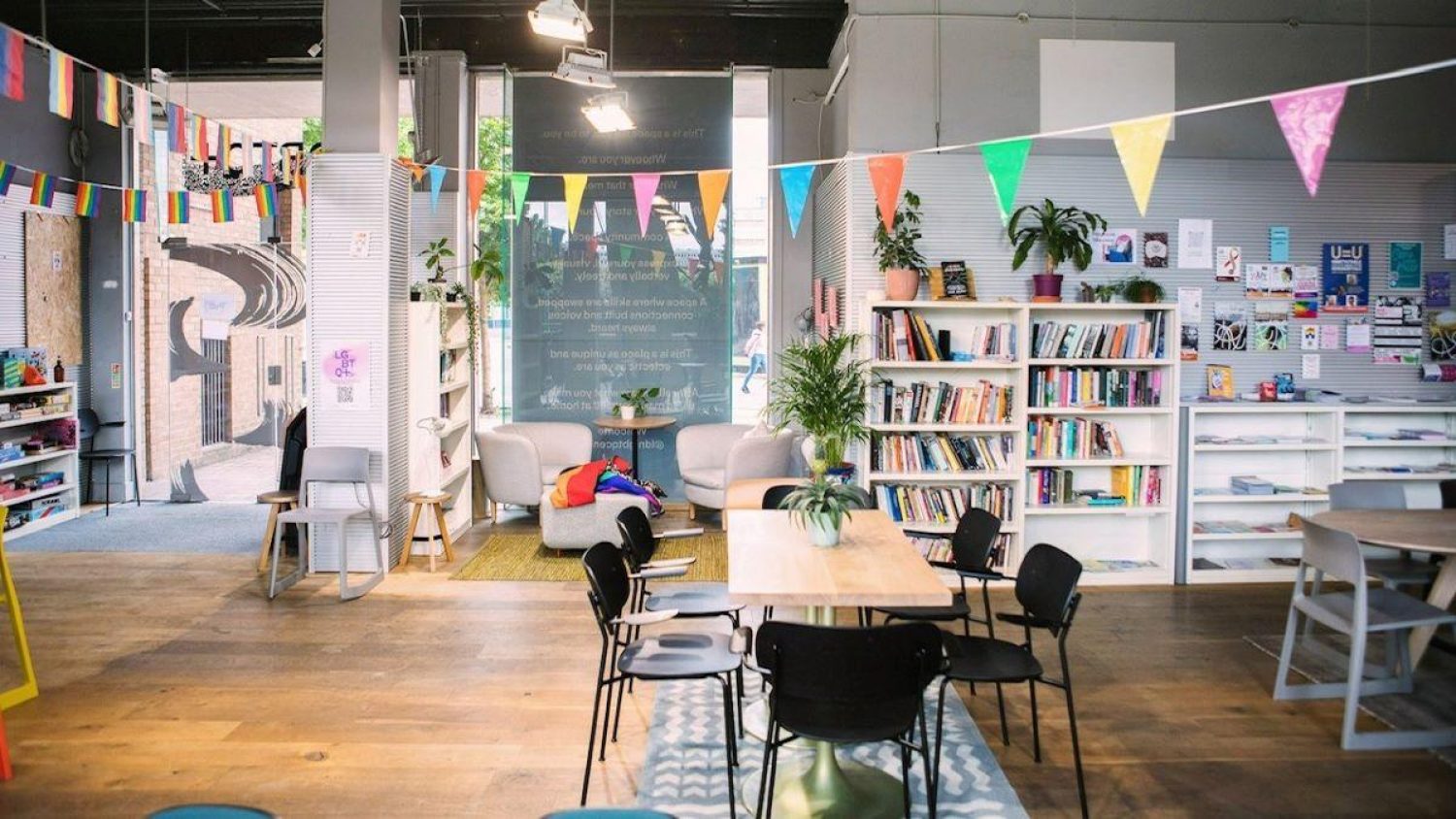Two minute read
LGBTQ+ History Month takes place every February. It’s an opportunity to celebrate the impact that LGBTQ+ people have had on society; to support the ongoing struggle for rights; and to highlight how LGBTQ+ people are changing history today.
Previously on Talking Death, we’ve featured LGBTQ+ bereavement service, Grief Encounter, as well as spotlighting the fantastic Queer Funeral Guide.
In this blog, we’re delighted to talk to Tom Ana, Outreach and Events Manager at the London LGBTQ+ Centre about their experience of running a Death Café.
We couldn’t find an LGBTQ+ specific Death Café in London, that’s why we decided to set one up. A Death Café is a space for people to come and talk about death and mourning in a sincere way without shame or stigma. Nothing is off limits. It can allow people to process and mourn collectively.
It’s a real mix of generations and backgrounds. There are some older people, some in their early twenties and some in between. Most people who have come to the Death Café haven’t been to a space like this before. Most are actively grieving, perhaps from a recent loss or one which has had a longstanding impact on them.
This Death Café is LGBTQ+ specific, because the relationships and connections we have can be outside the mainstream. LGBTQ+ people might have different, non-normative relationships with families or loved ones. There will be shared experiences that queer people all have together.
It’s a guided conversation — we have a topic and we take it in turns to talk. At the most recent Death Café, there was a lot of conversation about culture — how people connected or didn’t connect with their culture, whether they experienced prejudice or tolerance around being LGBTQ+ within their culture, and the impact that has on grieving.
It’s important to be able to speak without worrying about judgement. There’s space at the end of the two hours for people to make declarative statements — to say something without people responding directly to them.
You don’t need specific training to run a Death Café, but I have worked with people in end-of-life situations as a support worker. My co-facilitator is a psychotherapist. A Death Café is peer led, it’s not group therapy.
We do have biscuits. At the December one we had mince pies. We’ve not been running this Death Café for long. We’ve only done two so far, but we plan to run three or four a year. The next one is booked out — we have to put a limit on numbers, otherwise it becomes overwhelming.
People get out of it what they put in. For some, it’s cathartic to share with others and say what they are feeling out loud. Others will listen and say very little, but being part of the Death Café gives them an opportunity to reflect. It has been very powerful for some people to know that they are not alone in their experiences.
Since the first Death Café took place in 2011, more than 15,000 Death Cafes have been held in over 80 countries. Find out more about the Death Café movement or about Poppy's Death Café in Tooting Library.
Discover more about the events programme at London LGBTQ+ Centre.
To stay in touch with all the latest news and updates from Poppy's by email, sign up here or contact us if you need help planning a funeral.
